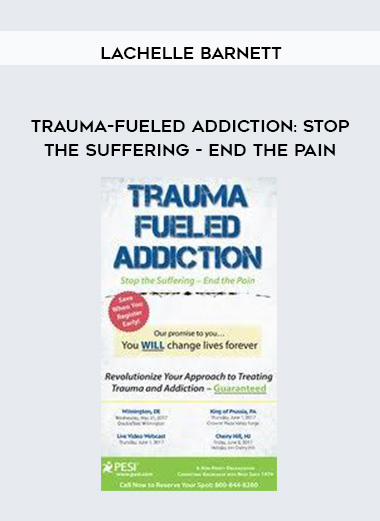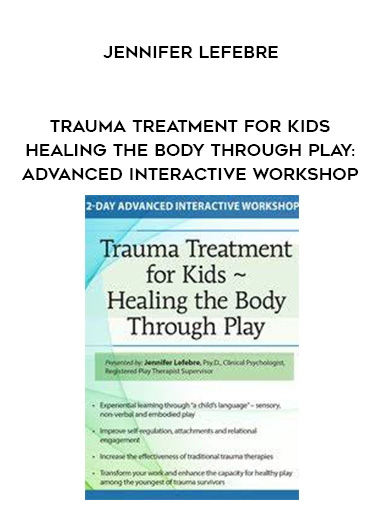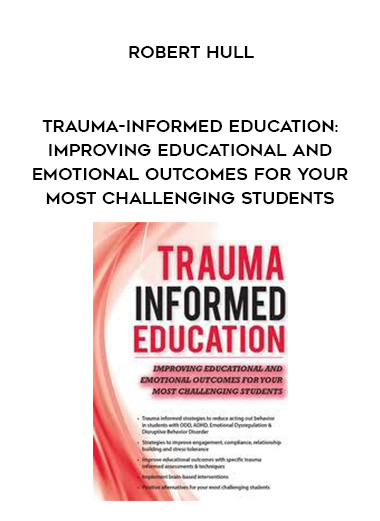TRAUMA-FUELED ADDICTION: STOP THE SUFFERING – END THE PAIN – LACHELLE BARNETT
We watch the pain that trauma inflicts on peoples life every day, we witness the spiral and the deepening of the pain that for years has gone untreated, we watch people struggle and ultimately grasp for anything within their control to ease the pain. Yet, with everything they do to ease the pain, the hole only deepens.
Their world and the world of their loved ones continues to grow darker and darker and darker every day of their life. As behavioral health professionals, digging people out of this hole is not simply something we do; rather it is our responsibility to do it effectively.
This breakthrough seminar will advance your clinical skills and competencies and give you proven and practical tools and techniques for your everyday clinical practice. Learn powerful trauma-focused interventions to help people reduce emotional pain and suffering and begin the healing journey of reclaiming their lives in recovery.
Join trauma and addictions expert, LaChelle Barnett, LCSW, LCAC, for this transformational seminar to learn about this cutting-edge new integrated approach to treating trauma and addiction. You will take home a wealth of evidence-based, best-practice clinical interventions and techniques including motivational and skills building strategies for helping trauma survivors who self-medicate with alcohol or drugs. Learn the latest advances in trauma treatment including the top interventions from CBT, seeking safety, body-based therapies and integrated approaches for women.
This evidence-based seminar will help you become a more trauma-competent therapist giving you the latest tools and techniques you need to treat trauma and addiction in your existing practice. The seminar will feature the latest research updates, live demonstrations, handouts, resources, interactive discussions, case examples and live role plays demonstrating key interventions and techniques.
- Describe innovative new ways to build and maintain the therapeutic alliance.
- Demonstrate an understanding of the neuroscience of traumatic stress and addiction.
- Identify key interventions from body-oriented therapies and mind-body practices.
- Identify the latest research on evidence-based treatments for trauma and addiction.
- Identify methods to teach clients mindfulness, relaxation and breathing teachings.
- Describe clinical interventions and techniques for reducing traumatic stress symptoms.
- Create emotional regulation strategies to reduce traumatic stress with trauma survivors.
- Identify key integrated interventions and strategies for treating trauma and addiction.
- Describe trauma informed interventions and approaches with women and addiction.
- Identify ways to integrate trauma and addiction interventions into your current practice.
Understanding Trauma and Addiction
- Neuroscience and the Brain
- Fight, Flight and Freeze Responses
- Dopamine and Addiction
- The Mind-Body Connection
- Soothing the Brain’s Amygdala
Relevant Trauma and Addiction Research
- What Works in Treatment
- Review of Effective Treatments
- Toward a More Integrated Approach
- Implement Evidence Based Practices
Identify Key Elements of Trauma and Treatment
- Symptoms of PTSD
- Negative Ways of Coping
- Factors Affecting Reactions to Trauma
- Screening Tools for PTSD
Make it Safer to Remember
- Rational for Trauma Treatment
- Create a Sense of Safety
- Relaxation and Breathing Techniques
- Progressive Muscle Relaxation
- Guided Imagery
- Mindfulness and Mediation
Therapeutic Relationship – How to Achieve Breakthroughs
- Body Language and Tone of Voice
- Nonjudgmental Style
- The Radical Idea of Being Nice
- The MI Style and Spirit
- Your Style of Delivery Matters
Learn Effective Top Trauma Treatment Techniques
- Past versus Present Approaches
- Holistic Approaches
- CBT Approaches
- Integrated Approaches
- Body-Orientated Therapies
- Overview of Seeking Safety
Interventions and Techniques for the Toughest Clients
- Intrusive Symptoms
- Avoidant Thoughts and Behaviors
- Negative Thoughts, Beliefs and Moods
- Arousal and Reactivity Symptoms
- Recovery and Resiliency Strategies
Effective Outpatient Addiction Strategies
- Assess Severity of Use
- Enhance Motivation to Change
- Relapse Prevention Skills
- Self-Help and Support Systems
- Cope Without a Drink or Drug
- Family Enabling Issues
- Building Positive New Lifestyle
- Medication Assisted Treatment
Integrated Treatments – Special Considerations for Women
- Treatment Needs of Women
- Co-occurring Disorders
- Family Systems Approach
- Women’s Integrated Treatment Model
Special Take Away Tools Section – Your Training Continues
- Summary and Conclusions
- Handouts Included to Take Home and Use
- Book References
- Resources
- Websites




